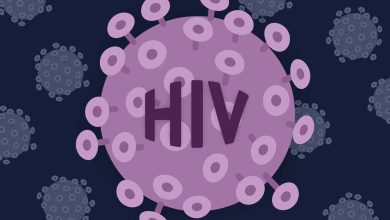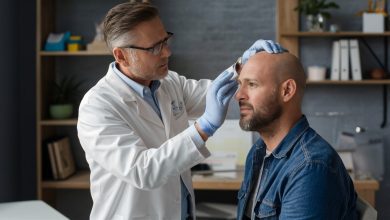Intensive Outpatient Program & PRP Services In Maryland
Understanding What We are Providing For Your Mental Health

Regarding mental health care, one size doesn’t fit all. Each individual’s journey is unique, and sometimes, a traditional inpatient stay might not align with the demands and intricacies of their daily life. That’s where the Intensive Outpatient Program (IOP) steps in – a dynamic and effective approach that bridges the gap between full hospitalization and complete independence. In this blog, we delve into the world of IOP, uncovering its benefits, structure, and how it’s transforming the landscape of mental health care.
Understanding the Intensive Outpatient Program
The Intensive Outpatient Program is designed for individuals who require more structured and comprehensive support than traditional outpatient therapy but who also wish to maintain their commitments outside of treatment. It offers a middle ground that acknowledges the significance of personal and professional responsibilities while prioritizing mental health and well-being.
1. Tailored Treatment
One of the hallmark features of an IOP is its personalized approach. The program is tailored to each individual’s unique needs, challenges, and goals. Whether you’re seeking help for anxiety, depression, addiction, or other mental health concerns, the IOP crafts a treatment plan that addresses your specific circumstances.
2. Comprehensive Care
An IOP isn’t limited to a single type of therapy. It encompasses a range of therapeutic interventions, including individual counseling, group therapy, family therapy, and educational sessions. This holistic approach ensures that all aspects of your mental health are addressed.
3. Flexibility and Convenience
The IOP recognizes that life doesn’t stand still during treatment. It allows participants to continue their daily routines, such as work, school, and family commitments while attending scheduled therapy sessions. This flexibility promotes the real-world application of learned coping skills and strategies. Learn More
4. Structured Support
Although IOP offers flexibility, it maintains structure. Participants are required to attend a set number of therapy sessions per week. This structure provides consistency, accountability, and a sense of progression throughout the program.
5. Skill-Building
A fundamental aspect of IOP is skill-building. Participants learn essential coping skills, stress management techniques, effective communication, and tools for emotional regulation. These skills empower individuals to navigate life’s challenges more effectively.
6. Peer Connection
Group therapy is a significant component of most IOPs. Engaging with peers facing similar challenges fosters a sense of community and belonging. Sharing experiences, offering and receiving support, and gaining new perspectives can be transformative.
7. Gradual Transition
As progress is made, participants might gradually reduce the frequency of sessions as they gain confidence in applying their learned skills independently. This transition period ensures a smoother integration back into everyday life.
8. Continued Support
The IOP doesn’t mark the end of your mental health journey. Many programs offer aftercare and follow-up support, ensuring that the progress achieved during the program is maintained and reinforced over time.
9. Wide Applicability
The IOP isn’t limited to specific mental health conditions. It can be effective for various concerns, from mood disorders to addiction recovery. Its adaptability makes it a versatile option for a wide range of individuals.
In a world where balancing mental health and daily responsibilities can be challenging, the Intensive Outpatient Program shines as a beacon of hope. It’s a reminder that seeking treatment doesn’t have to disrupt your life but can enhance it. If you or someone you know is navigating the complexities of mental health, exploring an IOP might be the transformative step towards healing, growth, and lasting well-being.
Mental health journeys are as diverse as the individuals who embark upon them. Each person’s path is recognize by their or experiences, challenges, and aspirations. In the realm of mental health care, one program stands out for its comprehensive and person-centered approach – the Psychiatric Rehabilitation Program. In this blog, we delve into the nuances of this program, exploring how it empowers individuals to reclaim their lives, foster growth, and pave the way for meaningful recovery.
Understanding the Psychiatric Rehabilitation Program
The Psychiatric Rehabilitation Program is a holistic and multidimensional approach to mental health care. It is designed to support individuals in their recovery process by focusing on enhancing skills, fostering independence, and promoting community integration. Unlike traditional treatment models, which may solely target symptom reduction, this program recognizes that recovery encompasses a broader spectrum of personal development and well-being.
1. Person-Centered Approach
At the heart of the Psychiatric Rehabilitation Program lies the principle of individualization. Each participant is viewed as unique with distinct strengths, challenges, and aspirations. The program is tailored to address the specific needs and goals of the person, ensuring that their journey is guided by their own preferences and aspirations.
2. Comprehensive Support
The program offers a range of services that encompass various dimensions of recovery. These include individual counseling, group therapy, life skills training, vocational exploration, wellness education, and more. The program equips individuals with the tools they need to navigate challenges and thrive by addressing multiple facets of life.
3. Goal-Oriented Approach
Setting and achieving goals are fundamental to the recovery process. Participants collaborate with mental health professionals to define their personal goals – whether related to improving social interactions, pursuing education, finding employment, or managing symptoms. These goals serve as milestones and sources of motivation throughout the program.
4. Skill Development
Central to the Psychiatric Rehabilitation Program is the emphasis on skill-building. Participants engage in structured activities that help them develop practical life skills, such as communication, problem-solving, time management, and emotional regulation. These skills empower individuals to lead more independent and fulfilling lives.
5. Community Integration
Recovery extends beyond individual progress – it involves connecting with others and rebuilding a sense of belonging. The program facilitates opportunities for participants to engage with their communities through group outings, volunteering, and social events. Building supportive relationships and connections is a key aspect of long-term well-being.
6. Vocational Exploration
Meaningful work is vital to an individual’s sense of purpose and self-worth. The program assists participants in exploring vocational interests, building resumes, and acquiring job-seeking skills. This vocational support contributes to the reintegration of individuals into the workforce and society.
7. Holistic Wellness
Wellness is not limited to the absence of illness; it encompasses the overall well-being of an individual. The program educates participants on self-care, stress management, physical health, and emotional balance. Engaging in practices such as mindfulness, yoga, and relaxation techniques further enhances holistic wellness.
8. Personal Growth
Recovery is a journey of personal growth and self-discovery. The Psychiatric Rehabilitation Program fosters an environment that encourages individuals to challenge themselves, embrace change, and cultivate resilience. Through overcoming obstacles, participants emerge with a heightened sense of self-efficacy.
9. Real-Life Application
The program’s strength lies in its focus on real-world application. Skills and strategies learned in therapy sessions are meant to be practiced and implemented in everyday life. This approach ensures that participants are equipped to face challenges and navigate their environments more effectively.
10. Long-Term Support
The impact of the program extends beyond its duration. Many programs offer post-program support and follow-up to ensure that participants continue to thrive and build upon their progress. This continuity of care contributes to sustained well-being.
In a world where mental health challenges are prevalent and diverse, the Psychiatric Rehabilitation Program stands as a beacon of hope. It recognizes that recovery is not a destination but a continuous journey that involves personal growth, skill development, and community connection. This program empowers individuals to rewrite their narratives, embrace their potential, and lead fulfilling lives by providing a comprehensive and person-centered approach.
If you or someone you know is seeking a transformative path to mental health recovery, consider exploring the possibilities offered by a Psychiatric Rehabilitation Program. It’s a step towards empowerment, healing, and a promising future.






